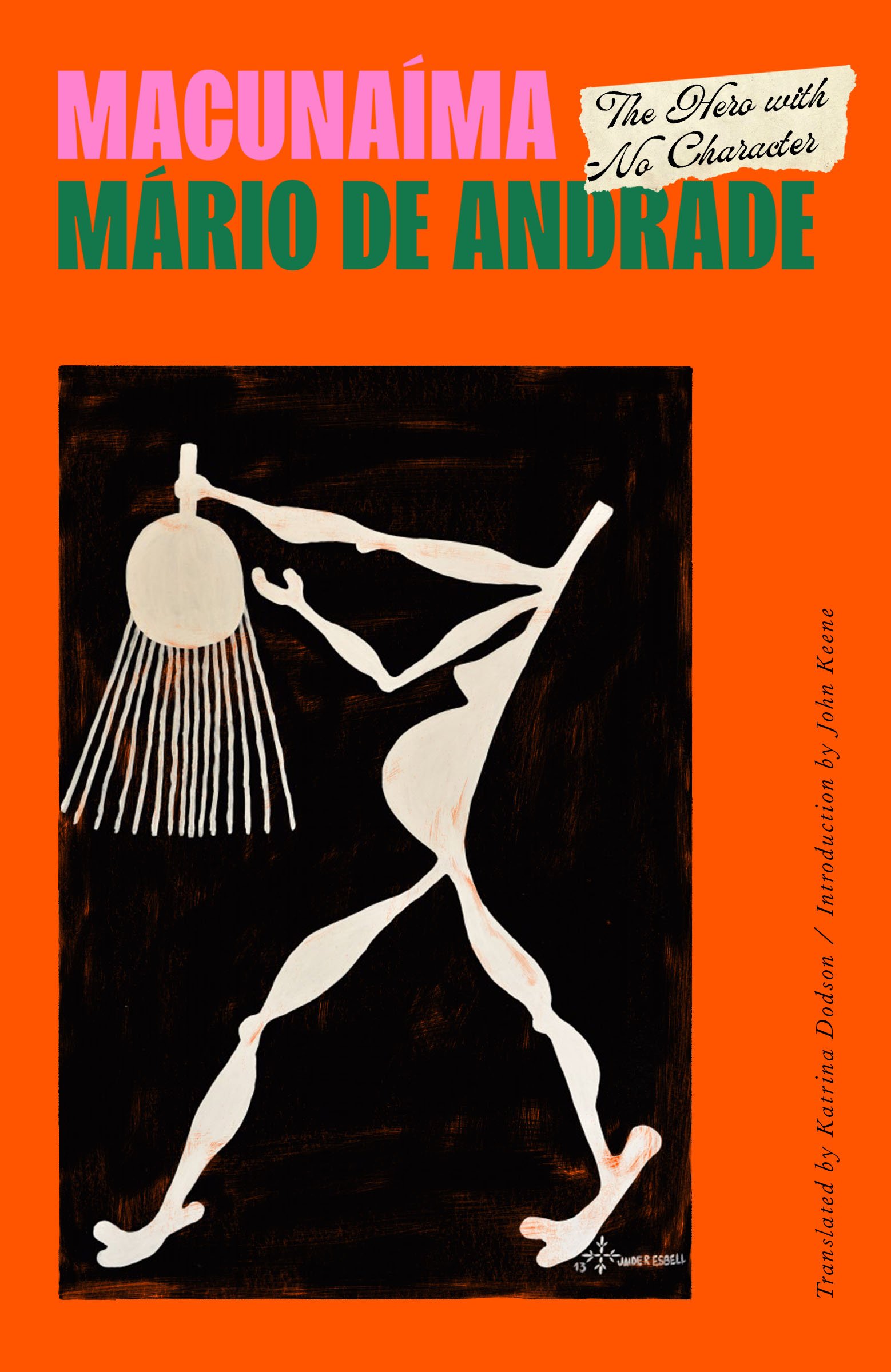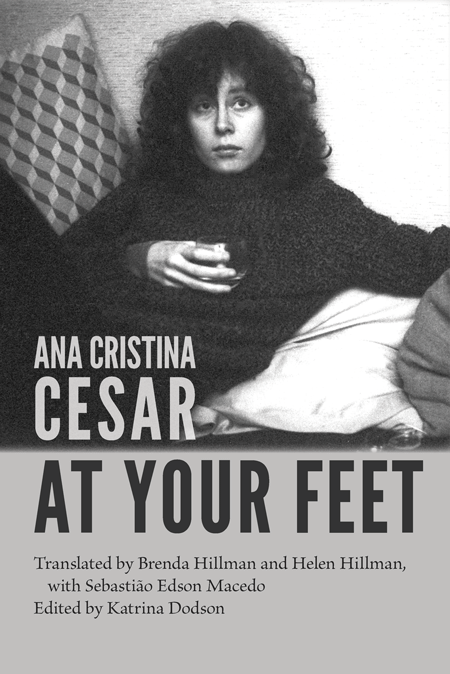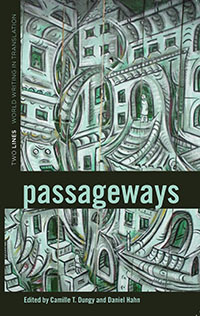TRANSLATIONS FROM PORTUGUESE INTO ENGLISH
BOOKS
MACUNAÍMA: THE HERO WITH NO CHARACTER, BY MÁRIO DE ANDRADE
(April 2023: New Directions, US; Fitzcarraldo, UK)
Read an excerpt from my translation (“Piaimã the Giant”) and my essay on the trajectory and translations of Macunaíma (“Impure Speech”) in Triple Canopy’s “Unknown States” issue (2022).
Since late 2016, I’ve been wrestling with a new translation of this brilliant, complicated work, with support from the National Endowment for the Arts, Brazilian National Library, Banff International Literary Translation Centre, and the MacDowell Colony. It is one of the most famous books of Brazilian literature, a 1928 modernist epic that reimagines myths based on the Indigenous demi-god Makunaima alongside other myths and popular folktales to produce a patchwork portrait of a Brazil proliferating with tropical flora and fauna in an era of rapidly increasing industrialization and immigration.
The novel, or “rhapsody,” as Andrade called it, revels in an experimental language that mixes aggressively colloquial Brazilian Portuguese with Tupi and other Indigenous languages alongside words with African roots, reflecting the country’s syncretic collision of communities. The story begins in the northern Amazon and takes the shape-shifting hero and his brothers on a journey through the backlands and urban capitals of Brazil, as they discover the alien customs and environments of São Paulo and Rio de Janeiro in their quest to reclaim the hero’s magic talisman, the muiraquitã, which has fallen into the hands of a filthy rich Italo-Peruvian captain of industry, Venceslau Pietro Pietra, who is also Piaimã the Giant, eater of men.
Andrade by Lasar Segall, 1927
Known as the “Pope of Brazilian modernism,” Mário de Andrade (1893–1945) was a central instigator of the legendary 1922 Semana de Arte Moderna (Modern Art Week) in São Paulo, and remains a towering figure in Brazilian culture. Alongside eight volumes of poetry, three short-story collections, and three novels, he wrote numerous books on Brazilian musical traditions and language, as well as art and literary criticism. In the 1930s, he served as founding director of São Paulo’s Department of Culture and pioneered the study and preservation of Brazilian folk heritage.
His masterpiece, Macunaíma, though written in a delirious six days, synthesizes years of research on Brazilian language, music, and folk traditions. It approaches questions of identity from the perspective of one who knows that the borders invented to delineate race, nation, gender, and sexuality are never stable—this from a writer whose queer sexuality has remained a point of suppression to this day, and who proclaimed himself “o bardo mestiço,” “the mixed-race bard,” a nod to his African and European heritage. Andrade’s provocative book continues to be extended and reinvented in various forms, including: a 1969 psychedelic film version (see below), two major theatrical adaptations (famously by Antunes Filho in 1978 and more recently by Bia Lessa in 2019), a 1975 Carnival parade theme by top Rio samba school Portela, a comic book, a musical album and stage show by Iara Rennó (Macunaíma: Ópera Tupi), and a performance incorporating responses to Macunaíma from Indigenous artists who claim Makunaimã as their ancestor (Makunaimã: o mito através do tempo).
Read more about Macunaíma in context by scholar Renata Wasserman here. Lucia Sá offers insight into its Amazonian themes and Indigenous sources in her book Rainforest Literatures and in this essay.
More on this translation:
“Impure Speech,” essay in Triple Canopy (2022)
“Piaimã the Giant,” excerpt Triple Canopy (2022)
Discussion of Macunaíma, University of California, Berkeley (2021)
National Endowment for the Arts fellow statement (2019)
"Devoção e devoração: por que eu quis traduzir Macunaíma," Itaú Cultural blog (2017)
“Katrina Dodson e a nova tradução de Macunaíma,” Bolivar Torres, O Globo (2016)
FILM SUBTITLES
In the midst of re-translating Macunaíma, I had the opportunity to further revise the English subtitles for Kino Lorber’s 2019 release of digital and Blu-Ray DVD versions of the 1969 psychedelic tropicalista Cinema Novo dictatorship-era adaptation by director Joaquim Pedro de Andrade, a cinema classic in its own right. While I’ve since made significant changes to the translation and wish I could still tinker with the subtitles (it never ends), I guarantee that these new subtitles allow the film’s more nuanced political and cultural ironies to come through alongside its physical and visual humor.
More on the Kino Lorber Blu-Ray Macunaíma here, access streaming digital here, & get the whole Joaquim Pedro de Andrade box set here.
Featured as part of the “Brazilian Modernism at 100” series I programmed at Brooklyn Academy of Music (Feb. 2022).
THE COMPLETE STORIES, BY CLARICE LISPECTOR (New Directions US, Penguin Classics UK, 2015)
ORDER: Bookshop Indiebound Barnes & Noble Amazon Apple iBooks Audible (audio book)
I spent two years translating a lifetime of stories by Clarice Lispector (1920-1977), one of Brazil's most beloved writers, in what felt like a continuous fever dream or "a one-woman vaudeville act," as I wrote in the Translator's Note. The result was the first complete volume of Clarice Lispector's stories available in any language. An edition in Portuguese, Todos os contos, was published in April, 2016 with the same design as the U.S. edition. More information, excerpts, and book reviews on the Clarice Lispector page.
AT YOUR FEET, BY ANA CRISTINA CESAR, translated by Brenda Hillman and Helen Hillman, with Sebastião Edson Macedo. Edited by Katrina Dodson (Free Verse Editions, 2018)
ORDER: Bookshop Indiebound Parlor Press Amazon
Ana Cristina Cesar (1952-1983) is among Brazil's best-known avant-garde poets, associated with the Poesia Marginal (Outsider Poetry) movement centered in Rio de Janeiro in the late 1970s and early ’80s. Despite a body of work cut short by her suicide at the age of 31, her innovative, mythic, and dreamlike poetry has gone on to wield a lasting influence on subsequent generations of writers. At Your Feet was originally published as a poetic sequence and later became part of a longer hybrid work—sometimes prose, sometimes verse—documenting the life and mind of a bold woman and queer poet who challenged the conventional values of her time. As editor, I collaborated with the translators on honing the enigmatic language of each poem, but also worked to determine the most accurate originals, resolving discrepancies between editions. Cesar’s poetry is notoriously difficult to edit due to the indeterminate nature of her handwritten manuscripts and first editions, especially in her propensity to switch between verse and prose forms in the same composition—thus creating confusion between deliberate line breaks and those caused by page margins. To answer an FAQ: there is no accent over the e in her last name, Cesar. Excerpt at Asymptote. Reviews here & here.
SHORT WORKS
“Clarice Lispector: Madame of the Void,” by José Castello. In The Paris Review online, December 10, 2020 (a tribute for Lispector’s centennial).
“A Writer! A Writer!” by Antonio Prata. In Best Small Fictions 2019. Ed. Rilla Askew. Series Ed. Nathan Leslie. Sonder Press, 2019.
Three crônicas by Antonio Prata. In “Becoming Brazil: New Fiction, Poetry, & Memoir,” Eds. Noah Perales-Estoesta and Eric M.B. Becker. Manoa: A Pacific Journal of International Writing Vol. 30.2, University of Hawai’i Press, 2018. Available online at Project Muse.
“After the Take-Over,” by Marielle Franco, co-translated with Jamille Pinheiro Dias and Deise Faria Nunes. New Left Review 110, March-April 2018, 135-140.
“L for Lá,” by Noemi Jaffe. In “Mythologies,” PEN America: A Journal For Writers and Readers Vol. 21, Spring 2018.
“Back to the Garden” by Carol Bensimon. Playbill essay on the Amazon for The Encounter. McSweeney’s for the Curran Theater, April 2017, 30-33.
FIRST TRANSLATIONS
"LETTUCE NIGHTS," BY VANESSA BARBARA & "A TEMPORARY STAY," BY EMILIO FRAIA, IN
GRANTA 121: THE BEST OF YOUNG BRAZILIAN NOVELISTS, Ed. John Freeman (Fall 2012)
I translated the work of two very funny, very talented São Paulo writers, Vanessa Barbara and Emilio Fraia, for this issue showcasing twenty young Brazilian writers to watch. Barbara is also a journalist and was invited to be a New York Times international columnist as a result of this excerpt from her novel, Lettuce Nights (Noites de alface). Fraia's story, "A Temporary Stay," became the seed for a book of linked novellas that he is currently completing.
THE SUMMER OF CHIBO, BY VANESSA BARBARA & EMILIO FRAIA, EXCERPTED IN
TWO LINES 19: PASSAGEWAYS, Eds. Camille Dungy & Daniel Hahn (2012)
ALSO EXCERPTED IN MACHADO DE ASSIS: BRAZILIAN LITERATURE IN TRANSLATION 5 (2012)
Vanessa Barbara and Emilio Fraia launched their co-written novel, The Summer of Chibo (O verão do Chibo), at the 2008 Festa Literária Internacional de Paraty (FLIP), Brazil's premiere literary festival. I was in the audience and felt an affinity to their humor and style. We met, and they agreed to let me work with their novel as my first translation for publication.






